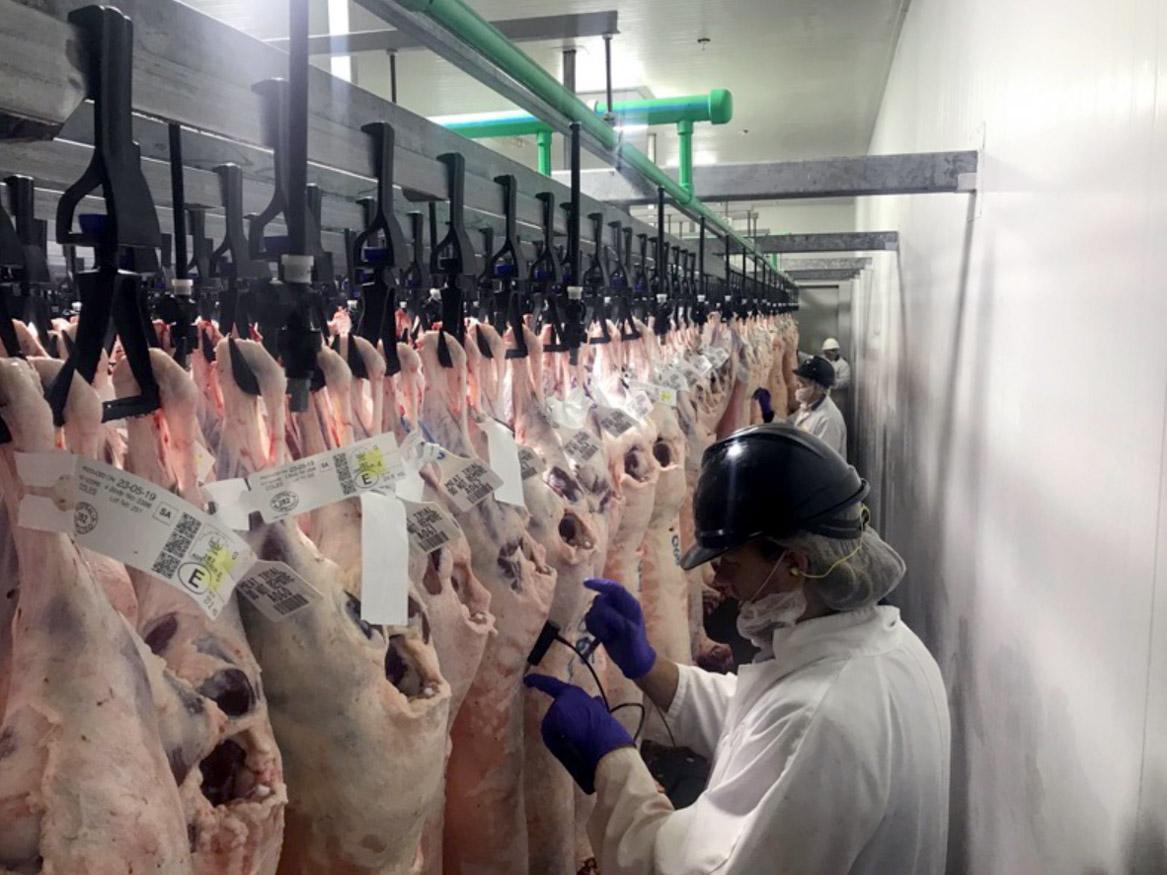How can we use science to help us choose better quality meat?

Case study: MEQ Probe - Chewing the fat
Intramuscular Fat (IMF) has a large impact on the juiciness, tenderness, flavour and overall consumer satisfaction of meat. The Australian Red Meat Industry is valued at over $25 billion. The industry is searching for objective ways to measure the IMF to be able to guarantee an enjoyable, consistent experience for consumers around the world.
MEQ Probe is an AgTech Startup building an objective measurement solution of IMF for the global meat industry. MEQ uses lasers and machine learning to deliver IMF data in real time on a hot carcass.
The MEQ Probe is inserted into a carcass, where lasers are used to obtain a biofluorescent signature for each individual carcass. Machine learning algorithms are applied to this signature to be able to measure the IMF content of the meat. This provides the IMF data to the processor in real time, and on a hot carcass, which is a critical time point in the production process, enabling key production decisions to be made.
Machine learning often requires very large datasets to generate the desired algorithm performance. This has led to MEQ running large-scale IMF data collection trials at abattoirs around Australia. Thousands of animals have been tested to calibrate the MEQ Probe tool in both beef and lamb.
This data collection requires MEQ taking teams of people into the abattoirs to probe carcasses, and subsequently collect meat samples for calibration of the tool. In the past 12 months, MEQ has on-boarded more than 20 students from the University of Adelaide and around Australia to perform the data collection.
This work includes collecting samples within an abattoir and the processing of samples in the meat laboratory, where the IMF is determined. This work is a great opportunity for students to broaden their understanding of meat science and learn practical skills that are useful for potential careers in the meat industry.
The MEQ Meat Lab has been a central point for the meat samples being collected around the country. The lab has been used to gain a greater biological understanding of the meat in terms of its composition and eating quality attributes.
The successful commercialisation and adoption of the MEQ Probe technology will be pivotal for the Australian Red Meat Industry, providing an objective way to underpin the eating experience of Australian meat products. For the lamb industry, this will be a world first opportunity.
